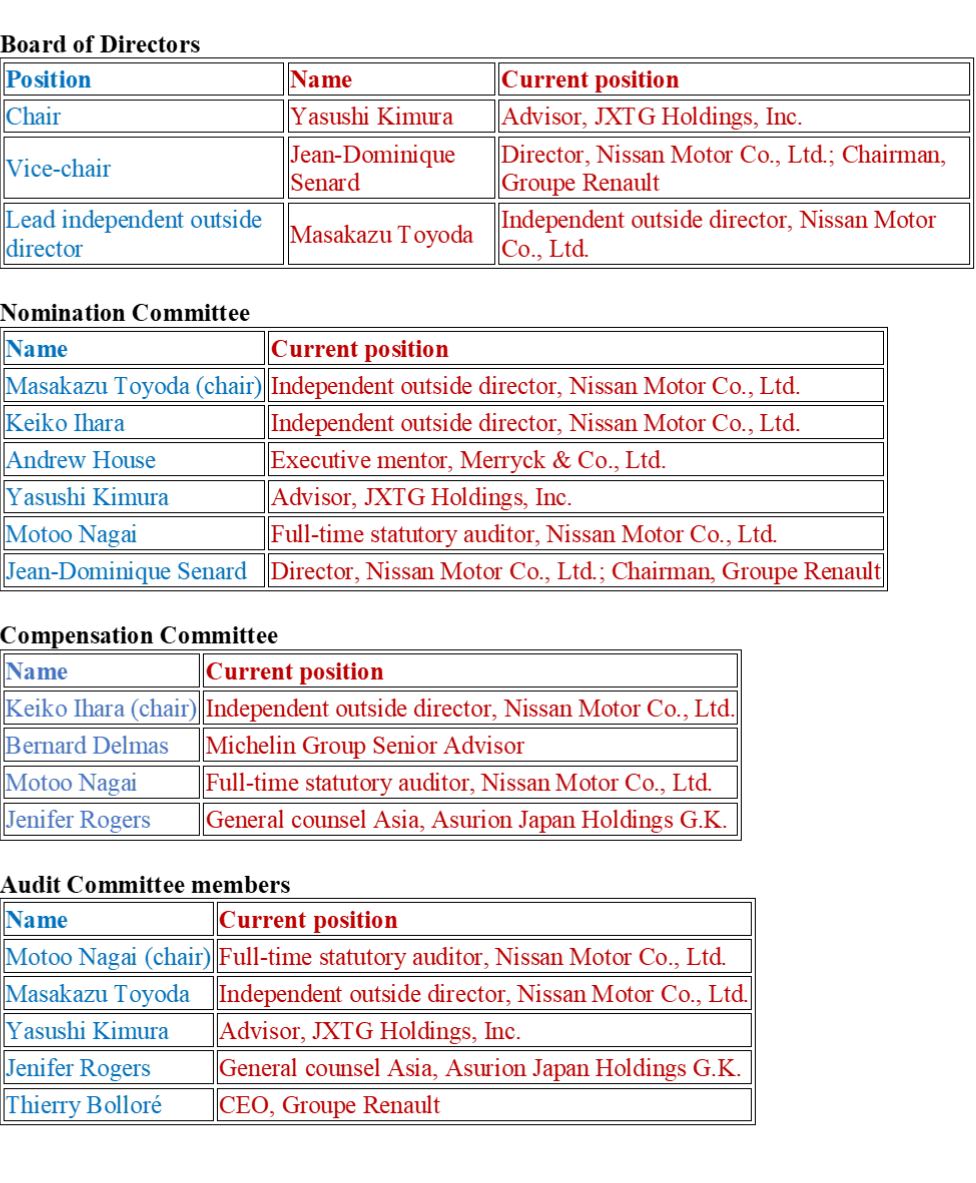
President Hiroto Saikawa was voted in again despite some shareholder protests. Is he at the center of a conspiracy or just bad corporate governance combined with Nissan infighting?
Nissan Motor held its 120th Ordinary General Meeting of Shareholders this week at the National Convention Hall of Yokohama. The meeting was attended by 2,814 shareholders and ran for three hours and 22 minutes.
At the meeting, shareholders approved all the resolutions:
- Appropriation of retained earnings for the 120th fiscal year
- Amendment of the Articles of Incorporation of the Company
- Election of 11 directors following the expiration of the term of all existing directors
The amendment of the Articles of Incorporation of the Company is the result of the Ghosn scandal. Nissan claimed it establishes “a highly robust corporate governance structure with separation of supervisory and audit functions and executive functions in an explicit form.”
In addition, it is aimed to improve transparency of decision-making through transition to a company with three statutory committees for execution of operations. Here, Renault – behind the scenes and against a backdrop of a failed merger with FCA that Nissan thwarted apparently forced some of its top executives to key committees.
The new board of directors comprises 11 individuals, seven of whom are independent outside directors. Power appears to be evenly split between Renault and Nissan despite Nissan’s and the Japanese government’s interest in asserting more control. Renault, which owns 43% of Nissan and the French government, which owns 15% of Renault, are pushing for a merger.

Balance of power between squabbling companies? We will see.
Paper organization charts are not always how business is conducted in mega, joint venture corporations. So, it will take some time to see how this works out as the Ghosn matter proceeds through the Japanese legal system.
AutoInformed on:

About Ken Zino
Ken Zino, editor and publisher of AutoInformed, is a versatile auto industry participant with global experience spanning decades in print and broadcast journalism, as well as social media. He has automobile testing, marketing, public relations and communications experience. He is past president of The International Motor Press Assn, the Detroit Press Club, founding member and first President of the Automotive Press Assn. He is a member of APA, IMPA and the Midwest Automotive Press Assn.
He also brings an historical perspective while citing their contemporary relevance of the work of legendary auto writers such as Ken Purdy, Jim Dunne or Jerry Flint, or writers such as Red Smith, Mark Twain, Thomas Jefferson – all to bring perspective to a chaotic automotive universe.
Above all, decades after he first drove a car, Zino still revels in the sound of the exhaust as the throttle is blipped during a downshift and the driver’s rush that occurs when the entry, apex and exit points of a turn are smoothly and swiftly crossed. It’s the beginning of a perfect lap.
AutoInformed has an editorial philosophy that loves transportation machines of all kinds while promoting critical thinking about the future use of cars and trucks.
Zino builds AutoInformed from his background in automotive journalism starting at Hearst Publishing in New York City on Motor and MotorTech Magazines and car testing where he reviewed hundreds of vehicles in his decade-long stint as the Detroit Bureau Chief of Road & Track magazine. Zino has also worked in Europe, and Asia – now the largest automotive market in the world with China at its center.


Nissan Shareholders Elect 7 Independent Directors Out of 11
President Hiroto Saikawa was voted in again despite some shareholder protests. Is he at the center of a conspiracy or just bad corporate governance combined with Nissan infighting?
Nissan Motor held its 120th Ordinary General Meeting of Shareholders this week at the National Convention Hall of Yokohama. The meeting was attended by 2,814 shareholders and ran for three hours and 22 minutes.
At the meeting, shareholders approved all the resolutions:
The amendment of the Articles of Incorporation of the Company is the result of the Ghosn scandal. Nissan claimed it establishes “a highly robust corporate governance structure with separation of supervisory and audit functions and executive functions in an explicit form.”
In addition, it is aimed to improve transparency of decision-making through transition to a company with three statutory committees for execution of operations. Here, Renault – behind the scenes and against a backdrop of a failed merger with FCA that Nissan thwarted apparently forced some of its top executives to key committees.
The new board of directors comprises 11 individuals, seven of whom are independent outside directors. Power appears to be evenly split between Renault and Nissan despite Nissan’s and the Japanese government’s interest in asserting more control. Renault, which owns 43% of Nissan and the French government, which owns 15% of Renault, are pushing for a merger.
Balance of power between squabbling companies? We will see.
Paper organization charts are not always how business is conducted in mega, joint venture corporations. So, it will take some time to see how this works out as the Ghosn matter proceeds through the Japanese legal system.
AutoInformed on:
About Ken Zino
Ken Zino, editor and publisher of AutoInformed, is a versatile auto industry participant with global experience spanning decades in print and broadcast journalism, as well as social media. He has automobile testing, marketing, public relations and communications experience. He is past president of The International Motor Press Assn, the Detroit Press Club, founding member and first President of the Automotive Press Assn. He is a member of APA, IMPA and the Midwest Automotive Press Assn. He also brings an historical perspective while citing their contemporary relevance of the work of legendary auto writers such as Ken Purdy, Jim Dunne or Jerry Flint, or writers such as Red Smith, Mark Twain, Thomas Jefferson – all to bring perspective to a chaotic automotive universe. Above all, decades after he first drove a car, Zino still revels in the sound of the exhaust as the throttle is blipped during a downshift and the driver’s rush that occurs when the entry, apex and exit points of a turn are smoothly and swiftly crossed. It’s the beginning of a perfect lap. AutoInformed has an editorial philosophy that loves transportation machines of all kinds while promoting critical thinking about the future use of cars and trucks. Zino builds AutoInformed from his background in automotive journalism starting at Hearst Publishing in New York City on Motor and MotorTech Magazines and car testing where he reviewed hundreds of vehicles in his decade-long stint as the Detroit Bureau Chief of Road & Track magazine. Zino has also worked in Europe, and Asia – now the largest automotive market in the world with China at its center.